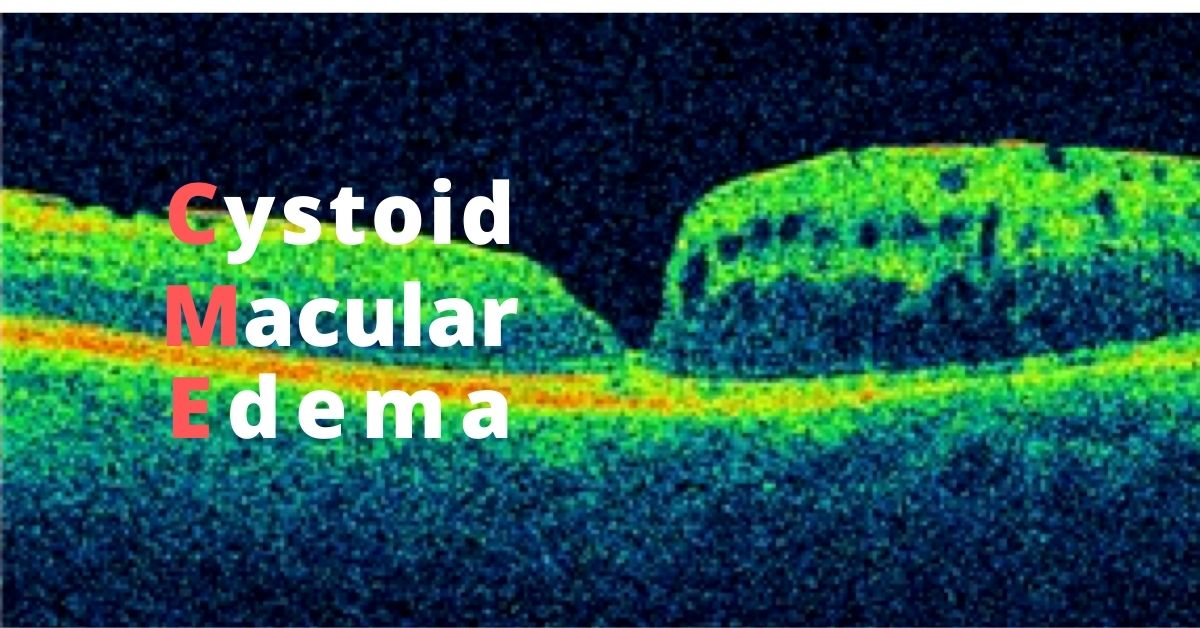What is Cystoid Macular Edema?
Cystoid macular edema, aka CME, affects the functional center of the retina, the macula. It is another term for macular edema where multiple cyst-like areas of swelling develop.
There are multiple causes of CME to include:
- Retinal Vascular Occlusions (RVO)
- Intraocular inflammation (uveitis or iritis)
- Diabetic retinopathy
- Uncomplicated cataract surgery
Symptoms of Cystoid Macular Edema
The main symptom of CME is blurry vision. There may also be some symptoms of distortion, poor color perception and minification, but most patients note blurry vision.
Because this is a condition of the macula, only central vision is affected. The peripheral or side vision is not involved.
Blurry vision can occur from a variety of eye conditions and is not a specific symptom of cystoid macular edema.
CME after Cataract Surgery
About 1-3% of patients will develop cystoid macular edema following cataract surgery. This can occur several weeks following uncomplicated cataract surgery. Before modern phacoemulsification techniques evolved, CME developed in as many as 10% of patients.
For reasons unknown, fluid starts to accumulate in the macula. Patients are often frustrated because the vision following surgery was excellent, only to get worse.
Treatment and Prognosis
CME following cataract surgery is usually self limited, that is, there is full restoration of vision and function after several weeks of treatment. The condition does not usually recur, but there is increased risk of developing CME in the fellow eye.
Treatment for CME following cataract surgery often involves topical anti-inflammatory eye drops. Steroid drops are often quite effective. In more complicated cases, injections of steroid around the eye may be helpful
Because CME can develop from other situations other than cataract surgery, treatments and prognosis vary widely. For instance, cystoid macular edema following a branch retinal vein occlusion may involve anti-VEGF injections or depot steroids.
Cystoid macular edema can also be caused by certain glaucoma drops or following complicated cataract surgery. Surgery may be necessary to treat the macular swelling due to complications of cataract surgery.
Consultation with a retinal specialist may be needed.
